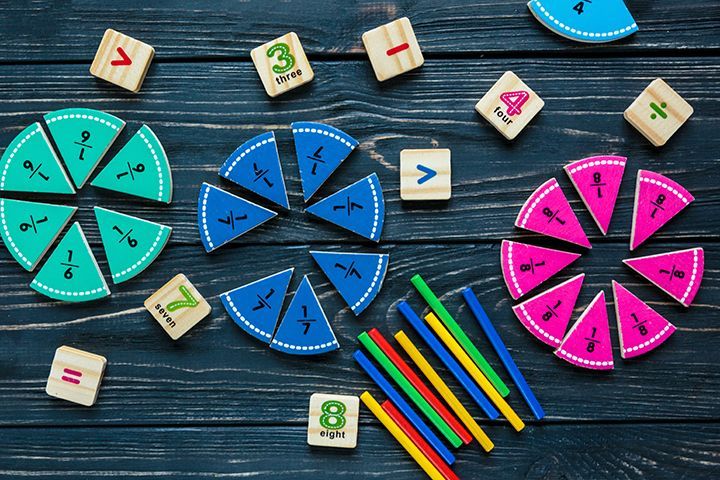by Angela McIver, PhD
For many teachers, the upcoming parent teacher conferences will be the first face-to-face meetings with parents in almost two years. Here are some Do’s and Don’ts as you prepare for your parent teacher conference.

Questions to Ask During the Parent Teacher Conference
Parents can be fraught with anxiety when it’s time to discuss their child’s performance with their child’s teacher. Much of this anxiety can be alleviated if the parent goes in prepared with questions to ask during the parent teacher teacher conference. Asking questions is the best way to shape the conversation and ensure you address all of your concerns with your child’s teacher.
You can gain insight into your child’s class by asking the teacher questions about the classroom dynamic. Simple questions like, “What is the most challenging part of your day?” Can lead to valuable opportunities for parents to help the teacher create a positive learning environment. For instance, your child’s teacher may say “I teach math after lunch. It’s difficult because students are far less attentive at that time. I lose 15 minutes of instruction time each day trying to get everyone settled down for math.” This information lends itself to a useful conversation with your child. You might say, “I understand that it’s hard for your class to focus after lunch when you do math, why do you think that is? What do you think you and your classmates can do to address this?” I guarantee, if every parent in your child’s class had that conversation, math after lunch wouldn’t be so difficult to teach and a lot more learning would happen.
Another question you might ask the teacher is how you as a parent can best support them. Their answers may surprise you. They’ll undoubtedly be happy to know that you believe supporting the teacher is important but most of all they will feel heard.
What Not to Do During the Parent Teacher Conference
Don’t be a Demanding and/or Unreasonable Parent
Please understand that most teachers care alot about your child's progress. Still, some parents can be demanding and unreasonable. So, I’m imploring you - don’t be that parent! Teachers have a set of expectations. Do you know what is expected of your child? Is your child's behavior in line with those expectations? When I was a teacher, I remember a parent telling me that she was going to schedule a meeting with her lawyer, one of the School Board members, the superintendent and me because I wasn’t willing to change her child’s grade from a C to something higher (her child didn’t turn in a single piece of homework the entire term and I thought giving him a C was generous). While this is an extreme example of the demanding and unreasonable parent, every teacher I know can share stories of parents from hell during this time of year.
Don’t be THAT parent!
Don’t blame the teacher for the curriculum!
I say this - especially when it comes to elementary math. Your child’s teacher is required to teach the mandated curriculum whether they agree with it or not. Many of the lessons that we see in elementary math curriculum are confusing. They are often developmentally inappropriate and move far too quickly for any real mastery to happen. Your teacher knows this and is equally frustrated.
Instead, you might ask the teacher “What is something in the curriculum that you wish you had more time to work on with students?” This will open up conversations about what you may be able to do at home to support the challenges our teachers are facing. While teachers are required to teach the mandated curriculum, they have a treasure trove of activities that they’ve collected over the years and are happy to share.
Don’t ask for special treatment for your child!
This is a big one. Please don't ask your child’s teacher to create different lessons or activities because you believe they are gifted, not being challenged and need more . I am the first one to agree that children should be provided with opportunities to be challenged at their level, but this is an issue for the school (or the district for that matter). Teachers have so much on their plates just planning lessons for an entire group. They work evenings and weekends making engaging activities and lessons for their students; they spend money out of their pockets to ensure that their students have what they need. The last thing they need is a parent asking for special work for their child.
DON’T BE THAT PARENT!!
Finally, I encourage you to remember that every teacher has been under an extraordinary amount of pressure after a year of remote learning. When teachers entered their classrooms this fall, they welcomed children who - for many reasons - have also been traumatized. Whether from a decline in mental health due to a year of being away from school and regular routines, or from the traumatic loss of a loved one to COVID-19. Our teachers welcomed a class of students that looked remarkably different from those in their classrooms in March, 2020. Many of our teachers have had to deal with their own trauma that COVID-19 has wrought. Additionally, schools and districts are facing an unprecedented level of teacher burnout and are working with challenging staffing shortages. This means that your child’s teacher may have a larger class than normal or is required to cover classes that don’t even have teachers. And many teachers have lost valuable prep time.
Given that context, let’s all agree to enter these parent teachers conferences with a mindset of love, patience and grace for our teachers. Be THAT parent!
Angela is a former middle school math teacher and founder of Trapezium Math - a company dedicated to creating joyful, confidence-building math experiences for children, teachers and parents. From 2018 to summer 2021 she was a member of the School Board for the School District of Philadelphia .










